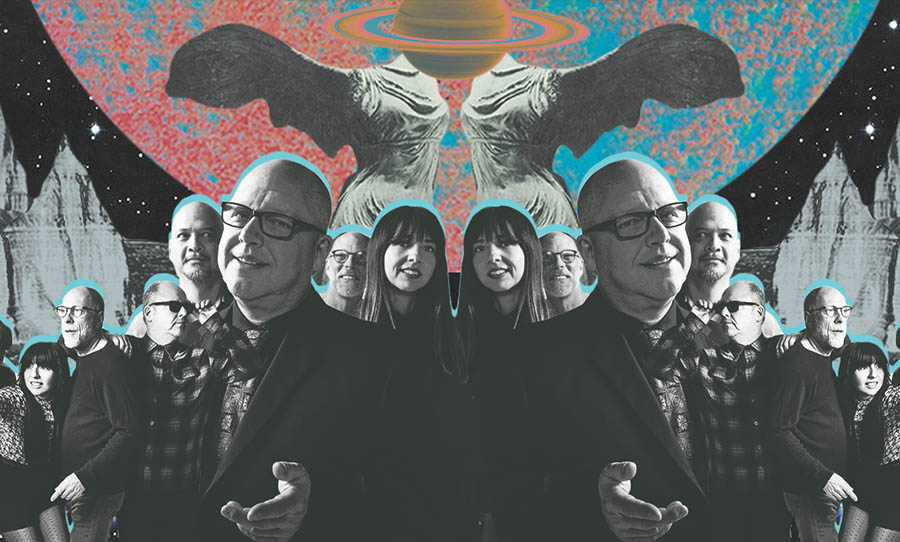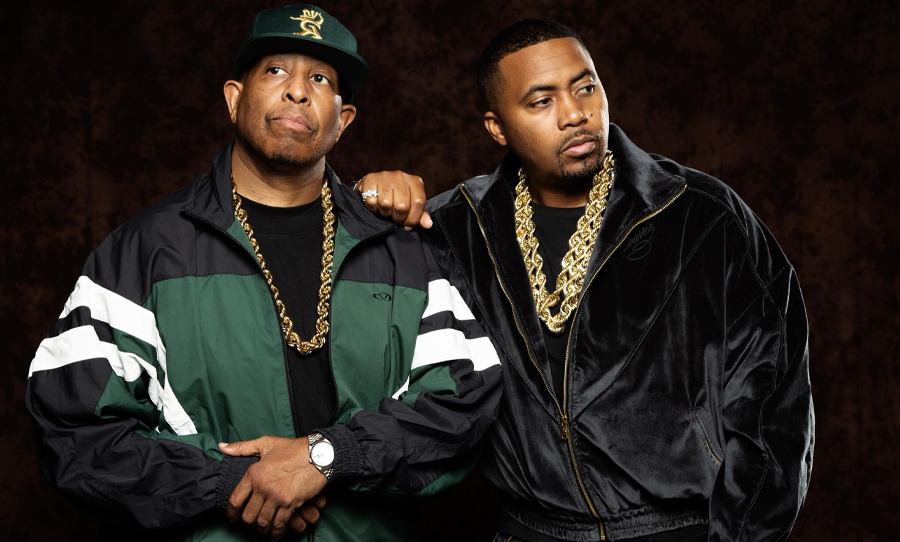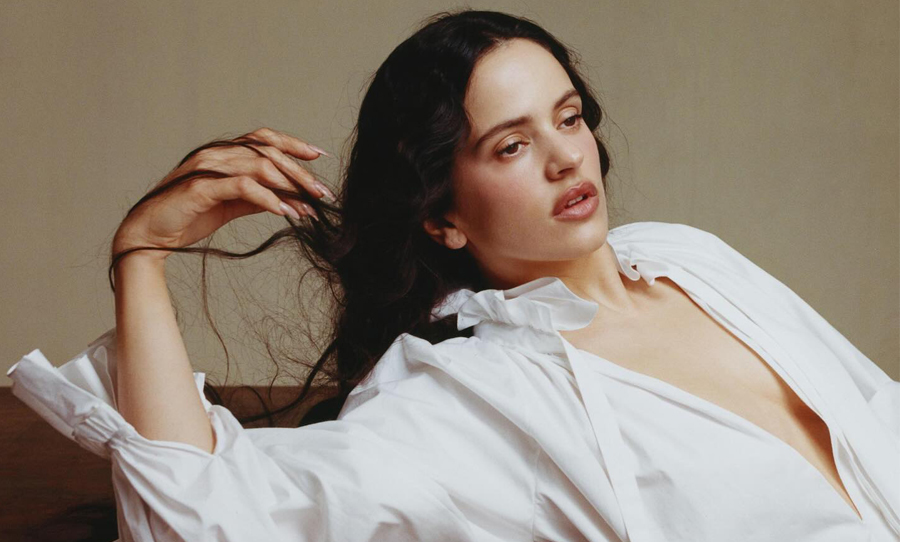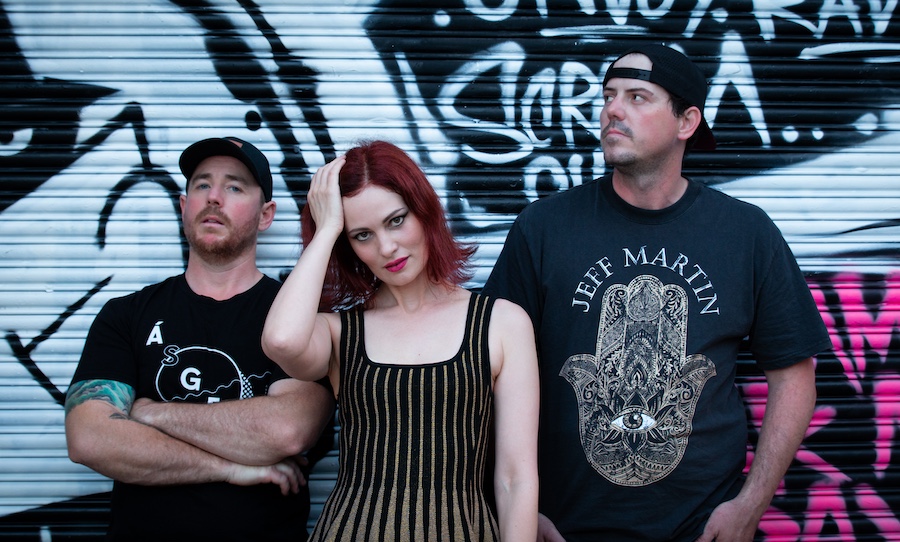In 1993, when Pixies announced an indefinite hiatus, drummer Dave Lovering found himself in something of a rut. “A large part of my identity was gone,” Lovering shared. But the thing that saved him, funnily enough, was magic. Yes, like magic tricks. Lovering started his career as The Scientific Phenomenalist, a magician whose tricks were based around self-built machines. Ten years later, when Pixies reunited, he took his magic show on the road with them, opening up each night’s performance. This, I think, is absolutely incredible.
So before Pixies return to Australia in March, we caught up with Lovering to chat all about his foray into magic and how the hiatus that birthed the Scientific Phenomenalist impacted the band’s iconic, groundbreaking brand of music.
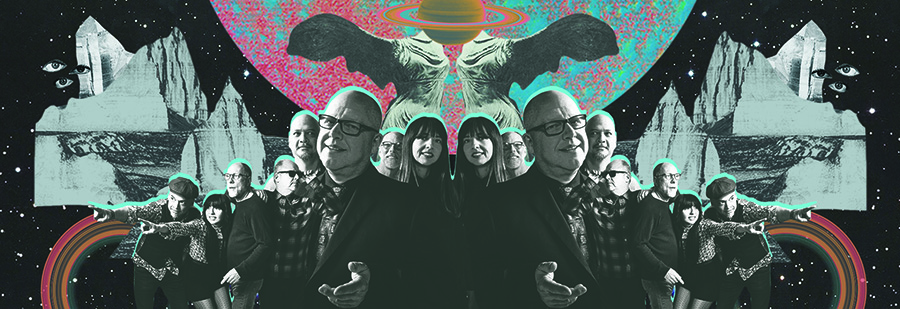
Before their March Australia tour, we caught with Pixies drummer Dave Lovering to chat about their iconic career, their new album, and magic.
HAPPY: It’s pretty crazy, every year from 2017 through to 2021, you’ll be celebrating the 30th anniversary of a Pixies album. What’s it like looking back on these albums at these huge milestones? Is it a nostalgic experience?
DAVID: Kind of, yeah. I don’t really look back on how we recorded the albums or anything like that. I’m not really that nostalgic, but little memories come floating back to you. A lot of those songs are really old, so learning to play them again is quite strange… but really, it’s a lot like riding a bike. They come back to you.
HAPPY: Does it feel like 30 years?
DAVID: No, not at all. Time really flies by. It’s all still really fresh to me, playing all these songs. It’s really quite wonderful.
HAPPY: That’s awesome. From 1993 to 2003, the band went on hiatus, and normally when a band returns from a break that large, they fall into being a bit of nostalgia act. But Pixies have definitely avoided that. Why do you think that is?
DAVID: Well, what happened Bill, is when we reunited properly in 2004 we played all over, playing all the old records. We did that for years, up until about 2011. For a while we were kind of a nostalgia act, playing all that old stuff. But in 2011, we realised, “wow, we’ve been doing this for a longer time period than we spent as a band back in the day before we broke up”. So that was the spark that made us think “well, we’re still a band and this is what we love to do”. So that’s what started the recording of Indie Cindy, Head Carrier, and now, Beneath The Eyrie.
HAPPY: From that initial 1987 – 1991 period, you were releasing albums pretty rapidly, but now you’ve slowed things down a bit. Have you made a conscious effort to do anything differently with this new incarnation of the band?
DAVID: We’re not doing anything purposefully different at all. On the records that we’ve done so far, the three records, there has been no formula that we’ve tried to recreate. We know and like how we sound. Joe’s guitar is unmistakable, you know? He’s got a certain sound that is the Pixies style… but there’s no conscious effort to do anything differently. Now that we’ve been around for so long, we feel a little more professional… so we’re just going for it.
HAPPY: Even you haven’t been doing anything differently on purpose, do you identify any specific differences in this second life of the band?
DAVID: Hmm, oh gosh. The only thing I can really say, Bill, is that because of getting this second opportunity, we appreciate so much more. Back then, this was all just something that was happening to us. We were young and it was all fantastic, and then it was taken away. Now we’re older and we’ve got it all back, so we’re having a much better time. We’re really enjoying ourselves.
HAPPY: How do you think that new-found appreciation feeds into the making of your new music. Does that affect it at all?
DAVID: On the musical side, yeah I think it has an impact. When you’re in the studio, it’s nice to actually want to be there. I’m not saying that we didn’t feel that way the first time, but now it’s definitely got a little more hootzpah.
HAPPY: I would like to talk about that period when you guys broke up in ’93, because I understand that was quite a tough period for you. But you’ve said that the thing that saved you was magic. How did you come to be involved with magic?
DAVID: Well, after we broke up it was tough. A large part of my identity was gone. I played drums for a few other bands and did some studio work, but then I just gave it up. Nothing could top my joy from playing with the Pixies. Before I played with them, however, I was an electronic engineer. But I really couldn’t go back and do that. There were a lot of younger and smarter kids coming through doing that kind of stuff. So I had a friend from Buffalo who was really into magic. We both went to this magic convention in Los Angeles, and I saw a magic trick that just blew me away. From that point, I was sold. I did everything in my power for about two years, studying magic, until I was proficient enough to become a magician.
HAPPY: And you’re magician name was the Scientific Phenomenalist…
DAVID: Yes!
HAPPY: And you built all your machines by hand…
DAVID: Oh yes! My Scientific Phenomenalist show consisted entirely of machines that I built. The whole idea of my show, being the Scientific Phenomenalist, was not to say that I was a magician. I was really just going out to do a science show with all these really wild experiments, then I started taking it into the magic world. My engineering definitely came in very handy.
HAPPY: Were there any specific machines you thought were particularly amazing?
DAVID: Oh gosh, well it’s funny… the main device that I built for my show was like a mini-computer, but it was all done with timing systems and circuits. It did a multitude of things, from flashing lights to throwing fireballs. It did everything on a timer with a remote control. That was the biggest most thoughtful project I ever built. It blew away a lot of people. I still have that machine on display at my house. I’ve had to put my Scientific Phenomanlist show on hold for the moment, only because Pixies are so busy.
HAPPY: Well, you toured the magic act around as a support act for a stack of bands. How did the magic show go down in a live music environment?
DAVID: The funny thing is Bill, that it went down really well. I opened up for Pixies when we got back together, I opened for the Breeders, I even opened up for a Pixies cover band before we got back together. People were very, very nice to me. They applauded even if the show wasn’t always that great (laughs).
HAPPY: They’re two pretty interesting career paths you’ve chosen. A musician and a magician. If you were to recommend one career path to anyone reading this, what would it be, musician or magician?
DAVID: Well that’s very tough (laughs). You see, those two careers… well, I’ll explain it this way… you’ve heard of the dying or starving musician?
HAPPY: Of course.
DAVID: Yes, well it’s very tough to be a musician. But to make it as a magician you have to be a top-tier, world-class act. So I call it the ‘Dying Magician’ (laughs). It’s not the wisest career choice, but I could easily use white-out to change all my business cards from musician to magician and back again (laughs).
HAPPY: That’s amazing. Now, I’d love to talk about the new album, Beneath The Eyrie, because it does capture a lot of the chaos that was in your music in the 80s and 90s…
DAVID: Yes, this one is interesting. A lot of people are commenting that it sounds like some of the older stuff, but again, we aren’t following any formula, this is just the way it’s coming out.
HAPPY: With all your earlier music, it feels like you’re touching upon an endless range of genres. But with this new stuff, it feels like you’ve pushed that diversity to another level. There are a lot of the same reference points, but it feels like you’re pushing them further…
DAVID: Well yes, I do feel like we’re always going into new areas. There are some pretty different songs here, like This Is My Fait, which is a kind of Tom Waits thing. It’s just that we think we can cover anything, so we’re always tempted to do it.
HAPPY: Wrapping things up… across your entire discography, you have sung two tracks. Is that correct?
DAVID: That is correct, yes.
HAPPY: Is there any chance of you hopping back behind the mic on future Pixies releases.
DAVID: Ooh maybe. I think there’s the potential for that on future records, but at the moment I’ve been keeping busy with a lot more backing vocals. That’s been nice. But yeah, you never know.
Catch Pixies live in Australia this March at any of the following dates:
Monday, 9th March – Palais Theatre, Melbourne — NEW SHOW
Tuesday, 10th March – Palais Theatre, Melbourne – SOLD OUT
Thursday, 12th March – Fortitude Music Hall, Brisbane – NEW SHOW
Friday, 13th March 2020 – Fortitude Hall, Brisbane – SOLD OUT
Saturday, 14th March 2020 – Sydney Opera House Forecourt, Sydney – SOLD OUT
Sunday, 15th March 2020 – Sydney Opera House Forecourt, Sydney – NEW SHOW
Tuesday, 17th March 2020 – Fremantle Arts Centre, Perth – SOLD OUT
Grab tickets and info here.
